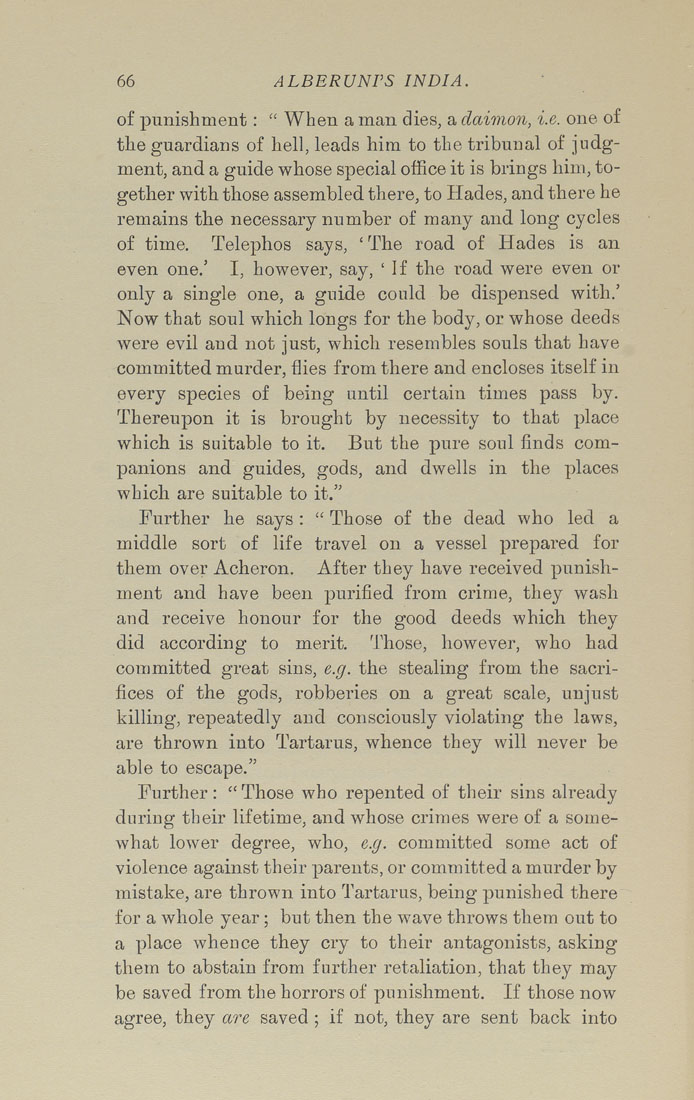66 ALBERUNPS INDIA.
of punishment: " When a man dies, a daimon, i.e. one of
the guardians of hell, leads him to the tribunal of judg¬
ment, and a guide whose special office it is brings him, to¬
gether with those assembled there, to Hades, and there he
remains the necessary number of many and long cycles
of time. Telephos says, ' The road of Hades is an
even one,' I, however, say, ' If the road were even or
only a single one, a guide could be dispensed with.'
Now that soul which longs for the body, or whose deeds
were evil and not just, which resembles souls that have
committed murder, flies from there and encloses itself in
every species of being until certain times pass by.
Thereupon it is brought by necessity to that place
which is suitable to it. But the pure soul finds com¬
panions and guides, gods, and dwells in the places
which are suitable to it."
Further he says: "Those of the dead who led a
middle sort of life travel on a vessel prepared for
them over Acheron. After they have received punish¬
ment and have been purified from crime, they wash
and receive honour for the good deeds which they
did according to merit. Those, however, who had
committed great sins, e.g. the stealing from the sacri¬
fices of the gods, robberies on a great scale, unjust
killing, repeatedly and consciously violating the laws,
are thrown into Tartarus, whence they will never be
able to escape."
Further: " Those who repented of their sins already
during their lifetime, and whose crimes were of a some¬
what lower degree, who, e.g. committed some act of
violence against their parents, or committed a murder by
mistake, are thrown into Tartarus, being punished there
for a whole year; but then the wave throws them out to
a place whence they cry to their antagonists, asking
them to abstain from further retaliation, that they may
be saved from the horrors of punishment. If those now
agree, they are saved ; if not, they are sent back into
|








